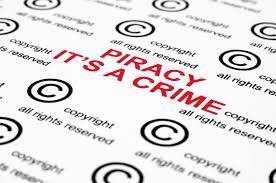Software piracy is the duplication, distribution or use of software without authorization from the copyright owner.
Here are some methods or scenario on how to spot a pirated or extended version of Quickbooks Enterprise:
- Update button should not be pressed as advised by the vendor as this could result to data error.
- Automatic updates not available to avoid data loss/error.
- Quickbooks Enterprise installed on the workstation cannot be opened.
- Quickbooks Database have unrecoverable errors.
- Quickbooks Data cannot be migrated to a Licensed version of Quickbooks Enterprise.
- Quickbooks Enterprise data become unusable due to data error
- Quickbooks Enterprise sold in 15 user license denotes that you are not the legal and registered owner of the software. Licenses are divided or sold to different owners.
- Quickbooks Enterprise license and product code is not registered under your company name
- Pirated Quickbooks Enterprise licenses are prone to data loss due to multiple copies of installation to different workstations.
It’s important to understand that software is not owned by an end-user, but rather licensed to the end-user by the copyright owner through an End-User License Agreement, often referred to as the EULA. The EULA contains the terms and conditions for using the software. Software publishers maintain ownership of the software they create, and control the right to duplicate and distribute their products.
Different forms of software piracy:
- Counterfeiting, or the illegal copying, sale, and distribution of copyrighted software and trying to pass it off as the original product.
- End-user piracy involves duplicating software by an unauthorized individual within the software company. This type of piracy may include using a single license for multiple installations, using upgrades from an old unlicensed copy, copying programs to use or distribute them, or getting software that requires a special permit without having it.
- Internet piracy is probably the most popular, and it entails copying a program and uploading it for anyone to download. This is very popular in torrenting sites, for instance, and users become liable for copyright theft.
- Hard-disk loading involves computer-selling businesses installing illegal copies of software on their products to make them more attractive to potential buyers.
- Client-server piracy overuse involves overusing a central copy of a program in a network. Remember: even central copies need multiple users’ licenses to run them.
Dangers of purchasing illegal or pirated copies of QuickBooks Enterprise Accounting software:
Intuit will eventually discover this and disable your license.
Pirated software may be loaded with malware (malicious software) or viruses.
It may be defective so it won’t work properly.
Pirated software may be used to collect personal information from your computer without your knowledge like credit card and bank account numbers, passwords, address books, etc.
Pirated software will not get the legitimate software updates that is necessary to prevent cyber thieves.
When you purchase QuickBooks Enterprise Accounting software from an Authorized Dealer or Channel, the software downloads come directly from the Intuit servers.
A legal way to get a copy of someone else’s QuickBooks software is to transfer ownership. If QuickBooks software is going to change hands from one business owner to another, Intuit will ask for the seller to complete a Transfer of Ownership form. They will review the details to determine whether a transfer of the license to the purchaser will be approved or denied. This the only way that an Intuit license can be transferred.
BSA | The Software Alliance warned that public’s data privacy is at risk as malware attacks, enabled by counterfeit software, allow hackers to steal customer’s data from companies.
For more information about Quickbooks Enterprise piracy, give us a call at +639178550539 or send us an email at dmmbiz@yahoo.com.



